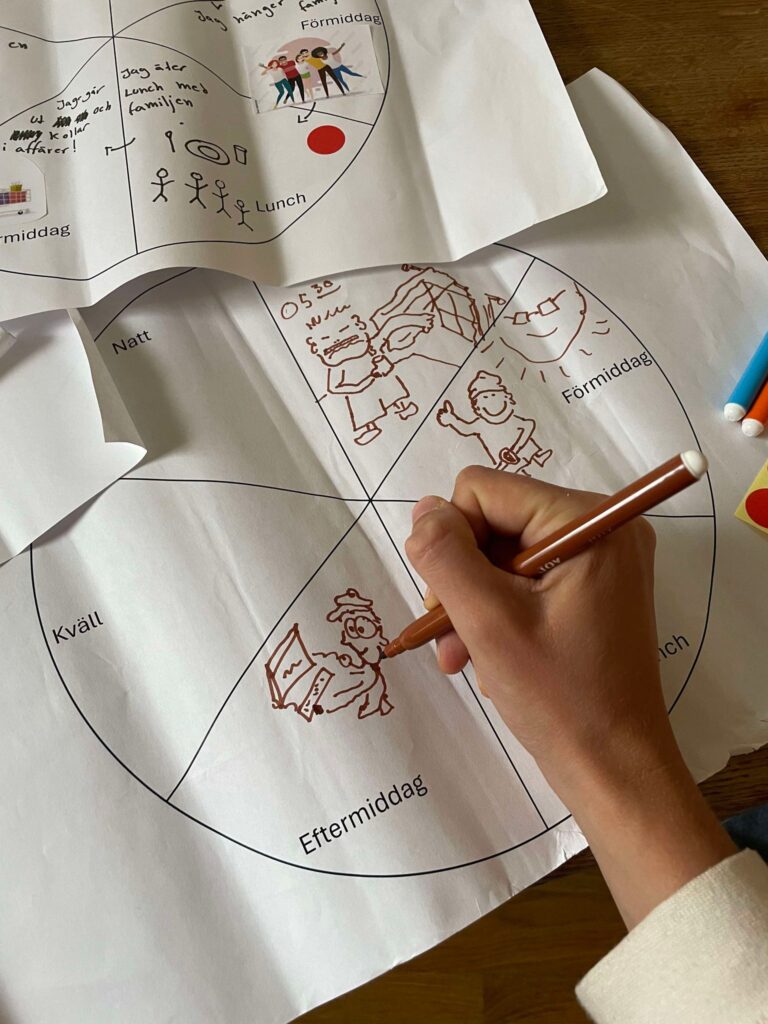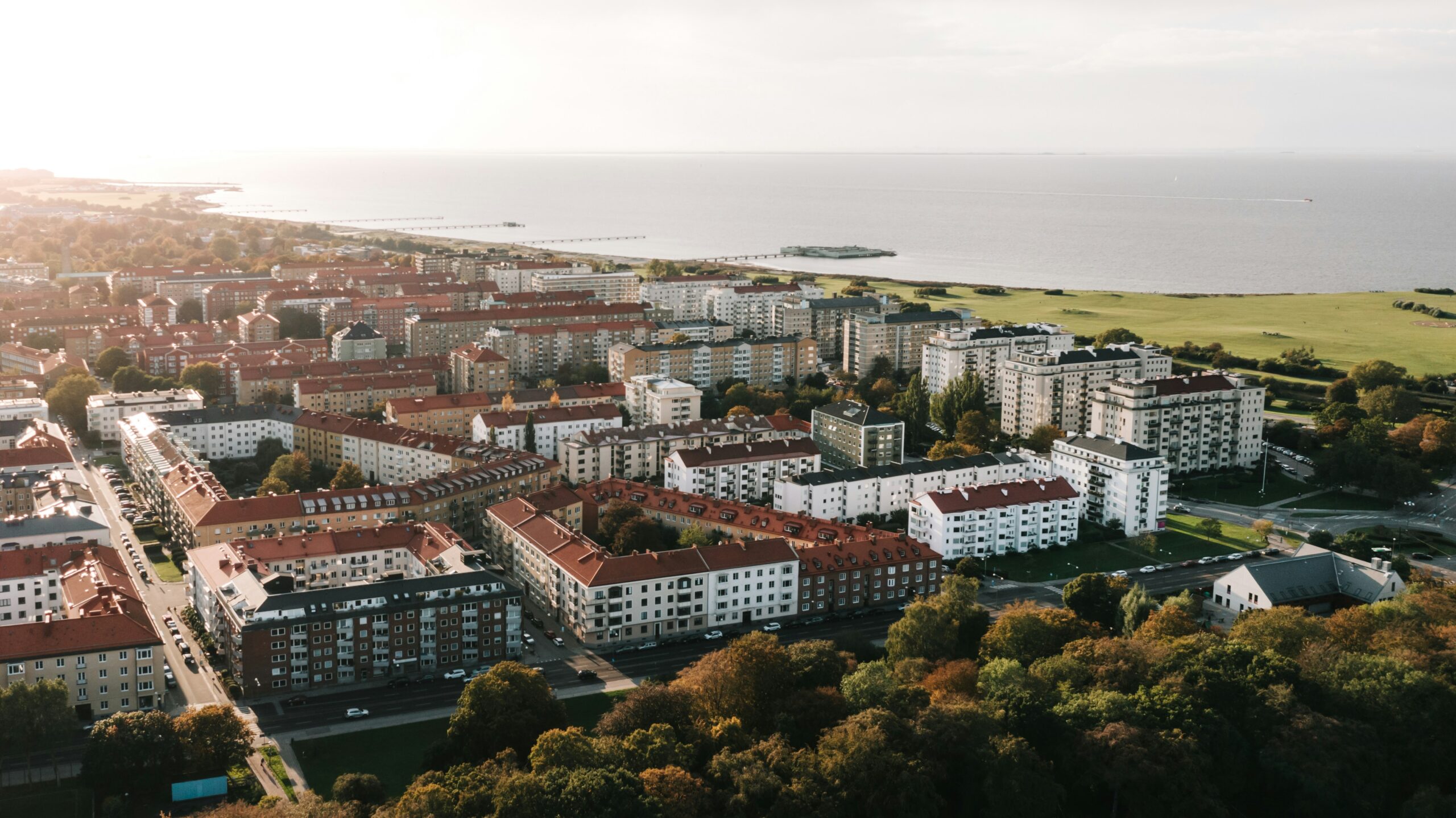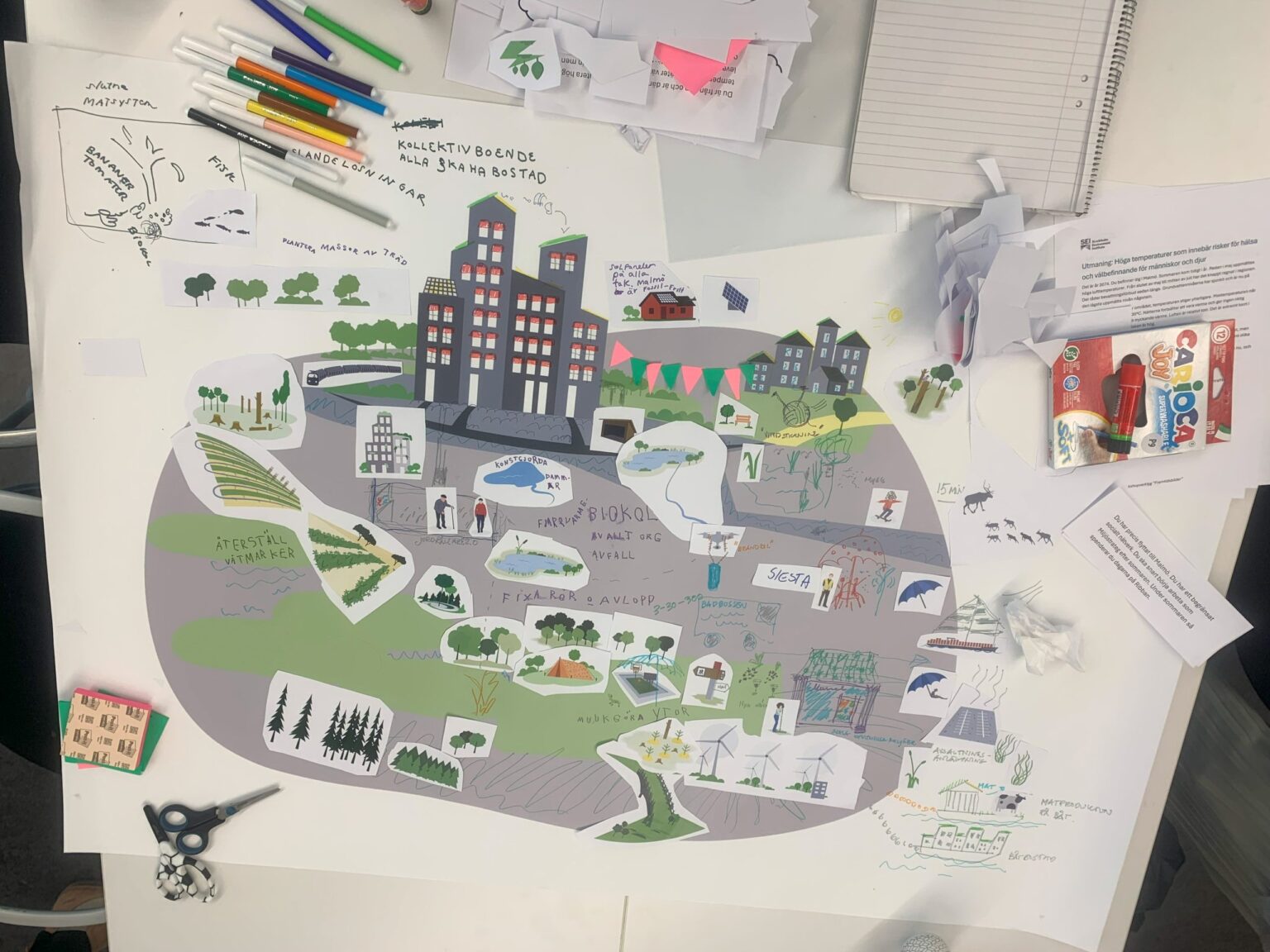Focus Group with Youth Interns in the Swedish Pilot

This case study is part of the Swedish pilot case study within the AGORA project. AGORA promotes societal transformation to empower local communities to address the climate crisis and aims to achieve this through a multidisciplinary, integrated approach, applied and tested in four pilot regions of Europe.
AGORA is a three-year HORIZON Europe project that started in January 2023. It supports the EU Mission on Adaptation to Climate Change.
Introduction
The AGORA project partner, SEI HQ, organized a focus group with the City of Malmö, Sweden. The focus group aimed to engage local stakeholders in the exploration of locally tailored soft adaptation measures for managing heatwaves and to co-evaluate methods for such measures in Malmö. The focus group meeting was divided into two parts, with two activities in each: 1) a drawing exercise and co-creating soft adaptation measures for heatwave management, and 2) an exercise co-evaluating engagement methodologies and a concluding evaluation. The first part had a specific target audience including 18 youth interns at the Environmental Department of the city of Malmö. The participants were aged 15-19 years old and included both men and women.
The second part of the focus group included three female participants aged 15-16 with roots in Tunisia, Chile, and Iraq.
The focus group began with an introductory session presented by the city administration’s climate adaptation coordinator. The presentation described the expected climate change impacts on the city and gave an overview of heat-related social vulnerabilities.
Implementation
Part 1
First Activity – Exploring experiences of heat exposure
The first activity of Part 1 involved a drawing exercise that allowed participants to illustrate what a normal day looks like for them. They were able to do this through creative exercises involving writing, drawing, and using stickers. After this, participants highlighted two activities in their daily schedule where they experienced the most discomfort from heat exposure. Participants were then divided into smaller groups to discuss three questions:
- What is hard to do when it is warm outside?
- What can you do about it?
- What can the municipality do?
From this exercise, participants identified sleeping to be most affected by heat. They argued that sleeping with their windows open is a solution to this problem, but some individuals felt unsafe leaving their windows open at night while others said it was noisy. Some other solutions were wearing lighter bed clothing, sleeping with a thinner duvet, and using a fan. To escape the heat, participants stated that air conditioning should be installed in public transport and in shopping malls. For adaptation measures, the stakeholders suggested better windows and insulation to protect buildings from overheating and provide more green spaces.

Second Activity – Co-creating soft adaptation measures
The second activity allowed participants to co-create soft adaptation measures. It was framed by the facilitator explaining common soft adaptation solutions. After this, participants brainstormed independently and then discussed each of the ideas they came up with as a group. Adaptation measures that the participants came up with include: creating cool outdoor environments, early heat warnings, and providing fans for individuals.
Part 2
The second session focused on the co-evaluation of engagement methods. The participants first read cards that related to the EMERGENCY category and individually ranked each adaptation option. Subsequently they shared their results and discussed with the group. For this category, participants felt that local alert systems were the most effective option, but they must be accompanied by information on preferred emergency action. The group expanded upon this, concluding that the warning systems should include different needs and abilities. For example, warnings for elderly populations should be delivered face-to-face or through radio communication while younger populations could use SMS or social media warnings. Some other measures included using news and weather forecasts, handing out flyers, or using information screens on public transport.
Conclusion
This focus group, represented by 18 youth interns at the Environmental Department of the city administration, explored soft adaptation strategies and engagement methods for the City of Malmö related to heat waves. Overall, the focus group results provide a good indication of how individuals and the municipality can meaningfully engage citizens in local climate adaptation.



Comments
There is no content